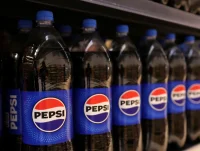The Mombasa Plastics Prize has selected 60 innovators to tackle marine plastic pollution along the coastline of Mombasa County. Aged 18-25, the finalists are grouped into 15 teams and are now in a race to be one of the top three teams to win over Ksh7 million of cash prizes. The first-place team will take home Ksh3.5 million.
The goal of the Mombasa Plastics Prize is to raise awareness of the problem of plastics in the ocean and to support new innovations. A recent study published in the journal Science in 2020 estimated that there is an equivalent of one garbage truck full of plastic dumped into the ocean each minute. This figure could triple to nearly 29 million metric tonnes by 2040, if current production and consumption remains unchecked.
“Like other growing urban areas, plastic pollution in Mombasa is a huge challenge. Through the Mombasa County Solid Waste Management Act, which advocates for reduction, recovery and recycling of waste, the County Government is in the process of implementing policies to regulate waste management. The youth are a critical cog in the wheel of progress towards marine plastics elimination and we laud this initiative which seeks to engage them to solve the challenge at a community level,” Francis Foleni Thoya Deputy Governor and CEC for Environment and Solid Waste Management said.
From January to May 2023, each team will develop their concepts. To help them build their prototypes into viable solutions, the teams will participate in a series of hack events, receive mentorship in entrepreneurship and business skills, and receive other capacity-building opportunities.
Delivered by Challenge Works, and supported by USAID and Global Affairs Canada, the prize builds on the work of the Afri-Plastics Challenge, which aims to reduce marine plastics in sub-Saharan African countries by developing and scaling innovative solutions to plastic mismanagement.
“Reversing the tide on marine plastic pollution is now recognised as a global challenge that requires collective action. We are pleased to support efforts to spur Mombasa’s young people to take the lead in innovative solutions to prevent millions of tons of plastic from ending up in our oceans every year,” USAID Kenya and East Africa Deputy Mission Director Sheila Roquitte said.
“The Canadian Government is proud to be part of an initiative committed to finding innovative solutions that promote the circular plastic economy, while simultaneously improving the social economic standing of women and girls in Sub-Saharan Africa. While the solutions may vary, policy solutions, increased awareness, and improved design among others, are critical to changing behavior and better managing plastic waste,” Tom Bui, Director of Environment at Global Affairs Canada said.
The Mombasa Plastics Prize efforts to reduce marine plastics mismanagement align with resolutions from the recently concluded United Nations Environmental Assembly (UNEA 5.2,) where the world’s ministers for the environment agreed to establish an Intergovernmental Negotiating Committee with the mandate to forge an international legally binding agreement to end plastic pollution.
Tris Dyson, Managing Director at Challenge Works said: “Our experience with the Afri-Plastics Challenge, a similar initiative that has been running in the past year, has given us unique insights and unearthed creative ways of working with local communities to tackle plastic waste.”
He added, “Learnings from the Afri-Plastics Challenge demonstrate that the relationship between plastic waste usage and human behaviour is complex; however, when innovations are paired with engagement strategies such as nudges, gamification, incentives and storytelling, as well as understanding the role that women and girls play across the value chain, behaviour change is triggered.”
This agreement on plastic pollution is the most significant environmental multilateral deal since the Paris Accord. The resolution calls for a treaty which promotes sustainable alternatives to plastics and fosters international collaboration on access to technology, capacity building and scientific and technical cooperation.
Read: Digital Billboards Livestreaming Nairobi’s Real-Time Air Pollution Data
>>> Centre for Green Growth Projected to Make Up For Pollution Caused by Manufacturers









Leave a comment